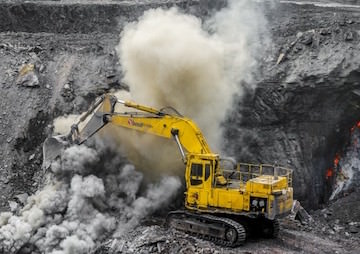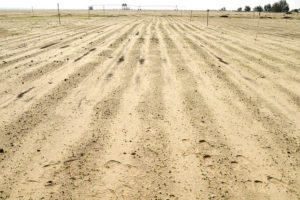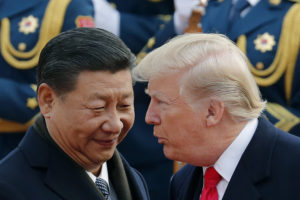Asia Is Losing Its Appetite for Coal
Many hundreds of planned coal-fired power plants in Asia will probably be shelved as economies slow and climate change and air pollution worsen. Coal mining in India, the world’s second-largest consumer of the fuel. (TripodStories-AB via Wikimedia Commons)
Coal mining in India, the world’s second-largest consumer of the fuel. (TripodStories-AB via Wikimedia Commons)
By Kieran Cooke / Climate News NetworkThis piece first appeared at Climate News Network.
LONDON — Asia, the world’s biggest coal market by far, is showing signs of turning its back on what is the most polluting of fuels, shelving or cancelling a large number of coal-fired power plant construction projects.
Four Asian countries — China, India, Indonesia and Vietnam — together account for about 75% of an estimated 2,457 coal-fired power stations at present planned or under construction around the world.
A study published by the Energy & Climate Intelligence Unit (ECIU), a UK-based non-profit organisation, says a combination of factors — including slowing economic growth and a rapid growth in renewables — means that a large percentage of these plants will never be built.
That’s good news for people living in cities such as New Delhi and Beijing, where coal-burning power plants are major contributors to health-threatening levels of air pollution.
It’s also good news for the planet: the burning of coal accounts for nearly 50% of global energy-related carbon emissions and is a main driver of climate change.
The ECIU says that in both India and China existing coal-fired power plants are under-utilised. In China — at present the world’s biggest coal producer and consumer — a faltering economy, over-optimistic projections of electricity demand and rapidly falling costs for renewable power are among the factors slowing coal demand.
Scaleback likely
In India, the world’s second biggest coal consumer, severe infrastructure problems are one factor hampering full use of existing coal plants.
In both countries, says the study, this may make new plants progressively less profitable, and less attractive to investors. Also, both countries are “massively expanding” renewable and nuclear generation.
Though both Vietnam and Indonesia have ambitious coal plant construction plans, the ECIU says these are likely to be scaled back in the years ahead.
After the global climate meeting in Paris late last year, Vietnam announced it was reviewing all new coal plant projects in order to implement “international agreements to cut emissions.”
Indonesia remains focused on expanding its coal-fired power sector, though projects on Java — one of the most densely populated islands on earth — are meeting strong opposition from those worried about air pollution.
Indonesia has also announced plans to source 23% of its energy from renewables by 2025 — up from 6% at present.
“The argument that there is no point in Western nations decarbonising because their emission cuts will be dwarfed by emission gains from Asia is based on shaky ground.”
Gerard Wynn, founder of the UK’s GWG Energy consultancy and author of the ECIU study, says the idea that a coal boom in Asia will undermine climate change pledges made at the Paris summit is exaggerated.
“In fact, the evidence suggests that the shift away from the dirtiest fossil fuels in favour of cleaner forms of energy is happening much faster than anyone could have expected”, says Wynn.
“The report’s assessment of new capacity that will be built may even be an over-estimate once the Paris Agreement comes into effect, as it will further restrict financing for new coal projects.”
China’s electricity demand last year grew at its slowest rate since at least 1970, at 0.5%. Wynn says: “That slowing power demand growth explains why the country doesn’t need new coal power plants. And it contradicts the official headline rate of 6.9% GDP growth last year.”
The report says it is far too soon to signal the end of coal in Asia, but the case for building new coal plants is quickly shrinking. “In our estimation, the number of new coal-fired power plants built across Asia is likely to be in the hundreds, probably the low hundreds”, says the study.
“As such, the argument that there is no point in Western nations decarbonising because their emission cuts will be dwarfed by emission gains from Asia is based on shaky ground.”
Kieran Cooke, a founding editor of Climate News Network, is a former foreign correspondent for the BBC and Financial Times. He now focuses on environmental issues.
Your support matters…Independent journalism is under threat and overshadowed by heavily funded mainstream media.
You can help level the playing field. Become a member.
Your tax-deductible contribution keeps us digging beneath the headlines to give you thought-provoking, investigative reporting and analysis that unearths what's really happening- without compromise.
Give today to support our courageous, independent journalists.






You need to be a supporter to comment.
There are currently no responses to this article.
Be the first to respond.